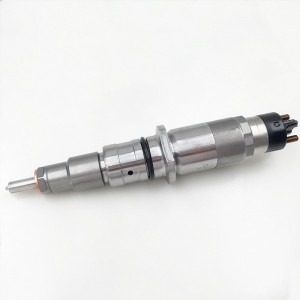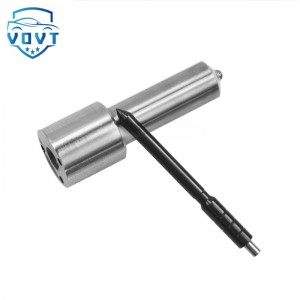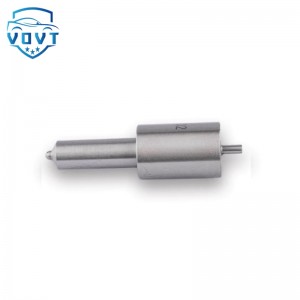High Quality New Diesel Injector Nozzle 6801148 L008CVA Common Rail Injector Nozzle for Diesel Engine Spare Parts
Products Description
| Reference. Codes | 6801148
L008CVA |
| Application | / |
| MOQ | 12PCS |
| Certification | ISO9001 |
| Place of Origin | China |
| Packaging | Neutral packing |
| Quality Control | 100% tested before shipment |
| Lead time | 7~15 working days |
| Payment | T/T, L/C, Paypal, Western Union, MoneyGram or as your requirement |
Possible causes of diesel injector nozzle blockage
The main function of a diesel fuel injector is to spray high-pressure diesel into the combustion chamber in a precise spray form to achieve good atomization and uniform distribution of the fuel. This plays a key role in improving combustion efficiency, enhancing engine power output, and reducing exhaust emissions.
Its working principle is that when the high-pressure diesel provided by the oil pump reaches the fuel injector, the needle valve in the fuel injector opens under electromagnetic or mechanical action, allowing the diesel to form a fine oil mist through the injection hole and spray into the cylinder.
A high-quality diesel fuel injector should have good fuel injection atomization effect, precise injection timing control, stable fuel injection pressure and reliable durability. If the fuel injector fails, such as poor fuel injection atomization, oil dripping, clogging and other problems, it may cause the engine power to drop, fuel consumption to increase, exhaust emissions to exceed the standard, unstable operation or even unable to start normally.
1. Poor diesel quality: Contains too many impurities, such as dust, rust, colloid, etc. These impurities will gradually accumulate in the small channels of the injector nozzle, eventually leading to blockage. The water content of diesel is too high, and the water will cause rust and corrosion, and the rust residue produced may block the injector nozzle.
2. Filter failure: The diesel filter has not been replaced for a long time or is of poor quality, and it cannot effectively filter out impurities, allowing impurities to enter the injector nozzle.
3. Deposition of combustion products: Carbon deposits produced by incomplete combustion may adhere to the surface and inside of the injector nozzle, gradually narrowing the injection channel.
4. Long-term idleness: The engine is not used for a long time, and the diesel dries up and deteriorates in the injector nozzle, forming sediments to block the injector nozzle.
5. Wear of the injector nozzle itself: Long-term work causes wear of the injector nozzle components, and the metal debris produced may block the injector nozzle. For example, some vehicles using inferior diesel are often more prone to injector nozzle blockage, which is manifested as reduced engine power and increased fuel consumption. For example, if a vehicle works in a harsh environment for a long time and the filter is not replaced in time, the risk of injector clogging will increase.























